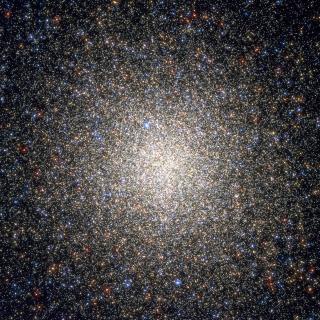Bibcode
del Pino, A.; Aparicio, A.; Hidalgo, S. L.; Łokas, E. L.
Referencia bibliográfica
Monthly Notices of the Royal Astronomical Society, Volume 465, Issue 3, p.3708-3723
Fecha de publicación:
3
2017
Número de citas
23
Número de citas referidas
22
Descripción
We present a novel analysis of the internal kinematics of the Fornax
dwarf spheroidal galaxy. Our results are based on the largest sample of
spectroscopic data for Fornax stars presently available (>2500
stars), for which we have chemical and kinematic information. We
introduce new software, BEACON, designed to detect chemo-kinematic
patterns among stars of different stellar populations using their
metallicity and velocity along the line of sight. Applying BEACON to
Fornax, we have detected non-negligible rotation signals around main
optical axes of the galaxy, characteristic for a triaxial system
partially supported by rotation. The dominant rotation pattern is
relatively strong (˜12 km s-1), but the galaxy also
shows additional weaker albeit complex rotation patterns. Using the
information available from the star formation history of Fornax, we have
also derived the average age of the different chemo-kinematic components
found by BEACON, which has allowed us to obtain its kinematic history.
Our results point to a possible major merger suffered by Fornax at
redshift z ˜ 1, in agreement with the previous works.
Proyectos relacionados

Vía Láctea y galaxias cercanas
El objetivo general del Proyecto es el estudio de la estructura, historia evolutiva y proceso de formación de galaxias a través de sus poblaciones estelares resueltas, tanto a partir de fotometría como espectroscopia. El proyecto puede dividirse en cuatro líneas principales: I. Historia de formación estelar en el Grupo Local. El objetivo de esta
Martín
López Corredoira